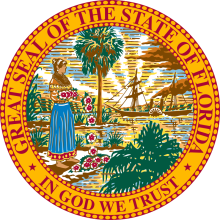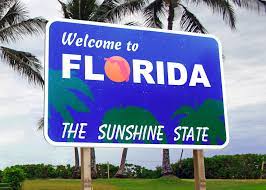
Florida’s state broadband office is doling out $144 million in grants to 58 different broadband expansion projects across 41 Florida counties.
The funding is being delivered courtesy of Florida’s Broadband Opportunity Grant Program, itself made possible by federal legislation—the American Rescue Plan Act (ARPA)— that many Florida lawmakers opposed.
The full breakdown of the deployments make it clear that, similarly to what we’ve seen in states like Montana, the lion’s share of state funding will be going to regional cable monopolies.
Roughly $89 million of Florida’s $144 million grant award will be going to the state’s three largest cable broadband providers: Cox, Comcast, and Charter. Comcast obtained $45 million, Charter was awarded approximately $28 million, and Cox was awarded $16 million. A more detailed breakdown of the awards obtained by Telecompetitor indicates that the vast majority of the projects are partnerships with cable giants.

Some of the projects outlined in a press release include the cities of Archer and Newberry, which are getting a combined $4.8 million to deliver fiber to 795 unserved locations in partnership with Cox; Columbia County, which secured $2.6 million to expand at least 50 Mbps service to 1,725 addresses in partnership with Comcast; and Hernando County, which received $4.7 millions to expand fiber to 2,276 households in partnership with Charter.
Despite the growing role of cooperatives and city-owned utilities in expanding access, just three cooperatives—Suwannee Valley Electric Cooperative, Glades Electric Cooperative, and Central Florida Electric Cooperative were given fiber expansion grants in this round of funding.
“I am proud to be in Santa Rosa County to announce the first awards through Florida’s Broadband Opportunity Program,” Governor Ron DeSantis said in a statement. “Broadband [I]nternet access creates jobs and enhances educational opportunities for Floridians. I look forward to continued investments through this program to ensure Florida families have access to important resources no matter where they live.”

DeSantis has repeatedly taken personal credit for infrastructure funding only made possible by federal ARPA legislation he opposed. Florida Republican Senators Marco Rubio and Rick Scott also voted against both ARPA and the billions in looming BEAD funding made possible by the Infrastructure Investment and Jobs Act (IIJA).
Regardless, Florida is still home to promising alternatives to monopoly power. Fort Pierce, Florida is currently building a promising new open access fiber network on the back of the city-owned power utility in the hope of boosting competition and lowering rates. City officials tell ILSR they did not apply for ARPA funding from the state.
A dearth of municipal, cooperative, or city-owned utility broadband projects in this funding round reflects a Republican party ideology that consistently vilifies municipal broadband deployments. In 2021, House Republican lawmakers went so far as to propose banning municipal broadband networks nationwide in a bid to protect national monopolies from meaningful competition.
ILSR studies have shown that estimated 83 million Americans lived under a broadband monopoly in 2020, and throwing billions in subsidies at regional telecom monopolies often fails to adequately address the nation’s stubborn digital divide. In part because monopolies are directly responsible for the limited competition and coverage gaps that have come to define it.
Entrenched industry giants often don’t complete promised network expansions, take subsidy funding for areas they don’t actually serve, and routinely exploit political leverage to elbow out smaller businesses and municipalities from federal funding opportunities, exacerbating a problem decades in the making.







